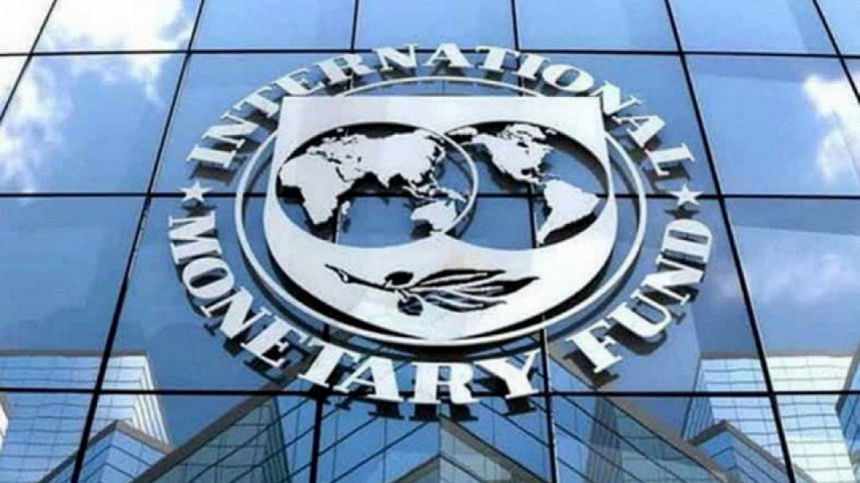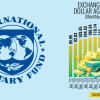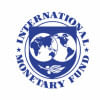Bangladesh-IMF talks to continue

The International Monetary Fund has no major disagreement with Bangladesh over reforms to the National Board of Revenue, one of the conditions set by the lender for the fourth and fifth instalments of the $4.7 billion loan.
However, consensus on the introduction of a market-based exchange rate, another key issue in the negotiation, remains unresolved, according to a Bangladesh delegation visiting Washington, DC.
Discussions with the IMF have largely been positive, with only a few minor issues remaining, Finance Adviser Salehuddin Ahmed, who is leading the Bangladesh delegation, said on Thursday night (Bangladesh time), according to Golam Mortoza, the press minister at the Bangladesh embassy in the US.
"We are close to reaching a consensus. The final meeting is scheduled for tomorrow [Friday night, Bangladesh time], and we expect the matter to be resolved," Salehuddin added.
After the meeting, Bangladesh Bank Governor Ahsan H Mansur told reporters in Washington that no consensus was reached there, and the talks would continue. "We hope to reach a consensus soon."
Before the Bangladesh delegation's Washington visit, an IMF team concluded a two-week mission to Dhaka on April 17 without a staff-level agreement as disagreements persisted over the flexibility of the exchange rate and measures to improve the revenue-to-GDP ratio.
To restructure the country's tax system, the government has drafted the State Policy and Revenue Management Ordinance, 2025, proposing the dissolution of the NBR and establishment of two new bodies -- one focused on revenue management and the other on revenue policy.
The IMF raised reservations on some sections of the ordinance, said a top official of the finance ministry.
Speaking about the ordinance, Salehuddin said, "However, they [IMF] did not raise any question when the final draft, approved by the cabinet, was sent."
The finance ministry official said the NBR also submitted a plan to the IMF during ongoing talks on raising Bangladesh's chronically low revenue-to-GDP ratio. The IMF primarily agreed on the revenue issues, but it will be finalised in another meeting in Washington.
The Bangladesh delegation left for Washington on April 19 to attend the IMF-World Bank Spring Meetings, with the goal of securing a deal. On the sidelines of Spring Meetings, they held a series of meetings with IMF officials, including Deputy Managing Director Nigel Clarke.
During its April 6-17 Dhaka visit, the IMF team led by Chris Papageorgiou discussed economic and financial policies in the context of the combined third and fourth reviews of the IMF programme.
Speaking to reporters during the visit, Papageorgiou had said, "From the IMF's perspective, and looking at the reform and its history, we have been discussing this crawling peg for at least one or two years."
"This is, in fact, the right time to move towards this flexibility," he said.
The crawling peg is a system of exchange rate adjustments in which a currency with a fixed exchange rate is allowed to fluctuate within a band of rates.
During the meetings in Washington, the IMF asked the Bangladesh delegation to maintain the crawling peg, adding that if the exchange rate fluctuates beyond 8 or 10 percent, the Bangladesh Bank would intervene to prevent volatility in the currency market.
However, the central bank argued that it needs to retain control over the market due to persisting manipulation. Given the persistently high inflation, it maintained that this is not the right time to make the exchange rate more flexible.
A senior official from the delegation said both sides are likely to soften their positions in the final meeting to reach a consensus on the exchange rate issue.
DRAFT ORDINANCE
According to the final draft ordinance seen by The Daily Star, the NBR and the Internal Resources Division of the finance ministry would be dissolved once a gazette notification on the ordinance is issued.
The ordinance would be promulgated next month and its implementation would commence in the next fiscal year, said officials of the finance ministry.
Under the ordinance, the government will establish two new bodies: the Revenue Policy Division and the Revenue Management Division.
According to the draft of the ordinance, the Revenue Policy Division will be responsible for designing the country's tax policy framework, proposing tax laws, setting rates, and ensuring coordination on international tax treaties and trade-related levies.
Under the Revenue Policy Division, a new advisory committee would be formed with economists, revenue experts, law experts, account and audit experts, and representatives from business, professional bodies and the Trade and Tariff Commission.
The committee would come up with suggestions on revenue policy on a regular basis. As per its advice, the division would fix the tax rates and policy.
The Revenue Management Division, on the other hand, will handle tax administration, compliance, audit, and enforcement of income tax, VAT, and customs.

 For all latest news, follow The Daily Star's Google News channel.
For all latest news, follow The Daily Star's Google News channel. 








Comments